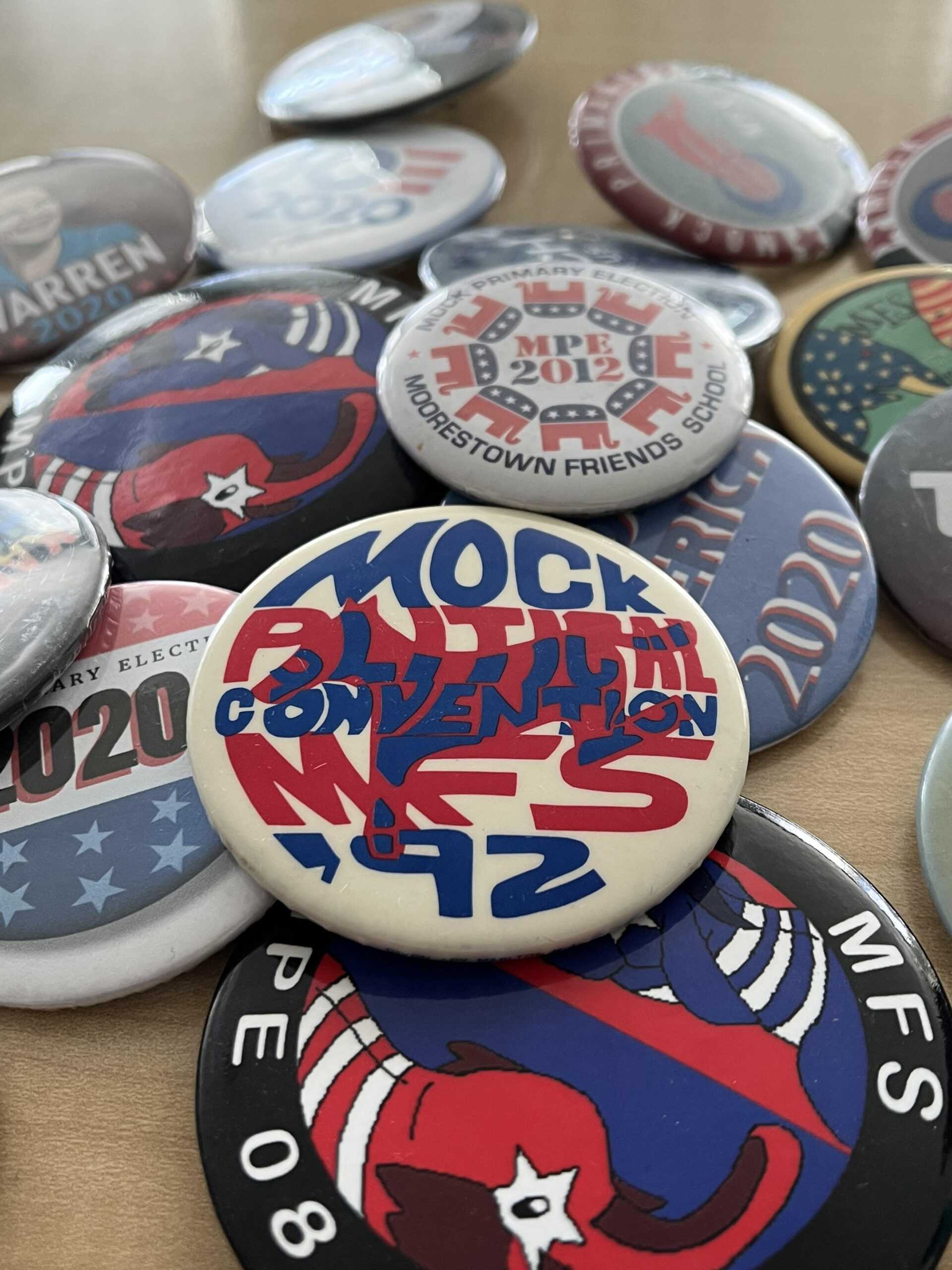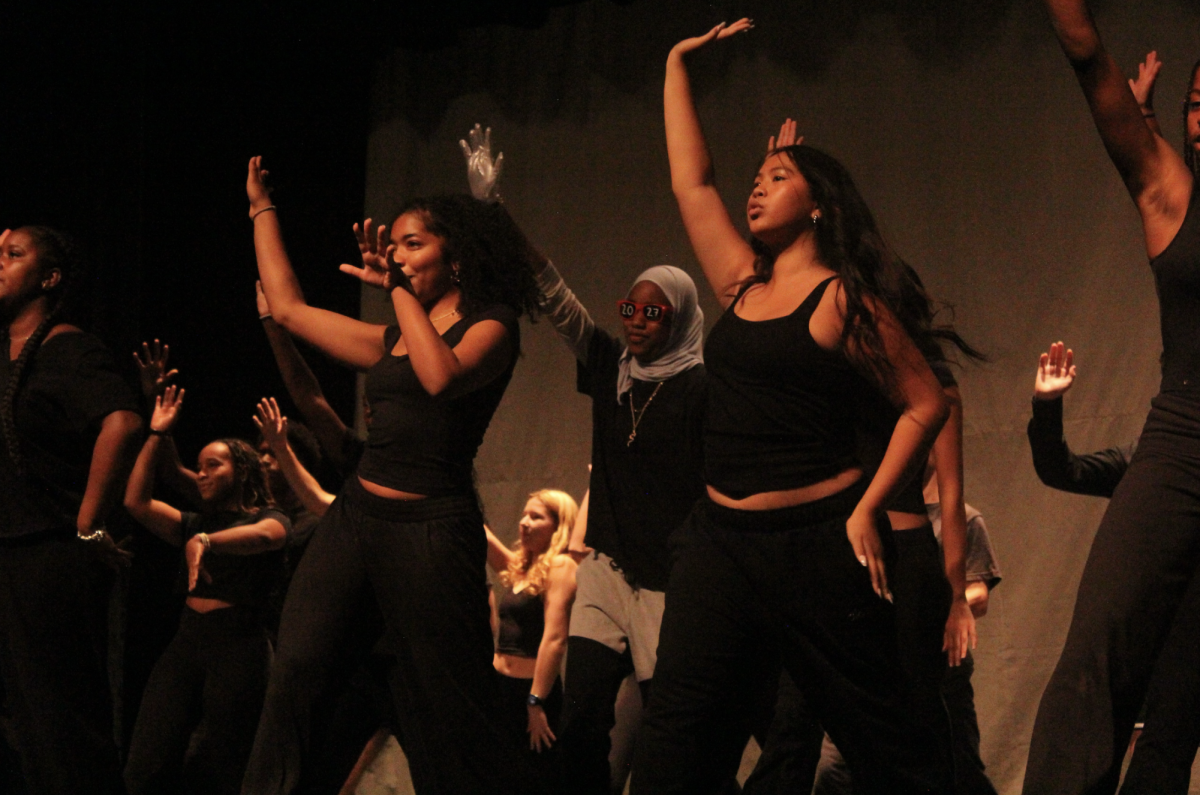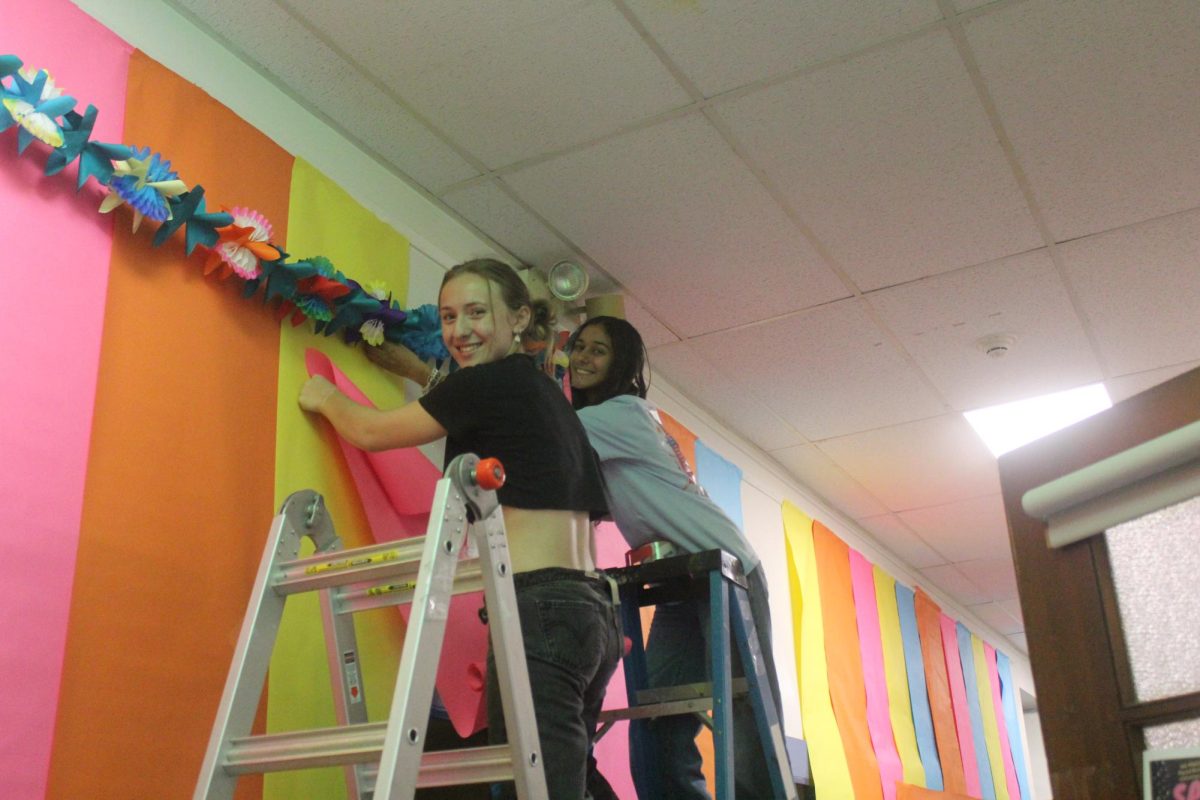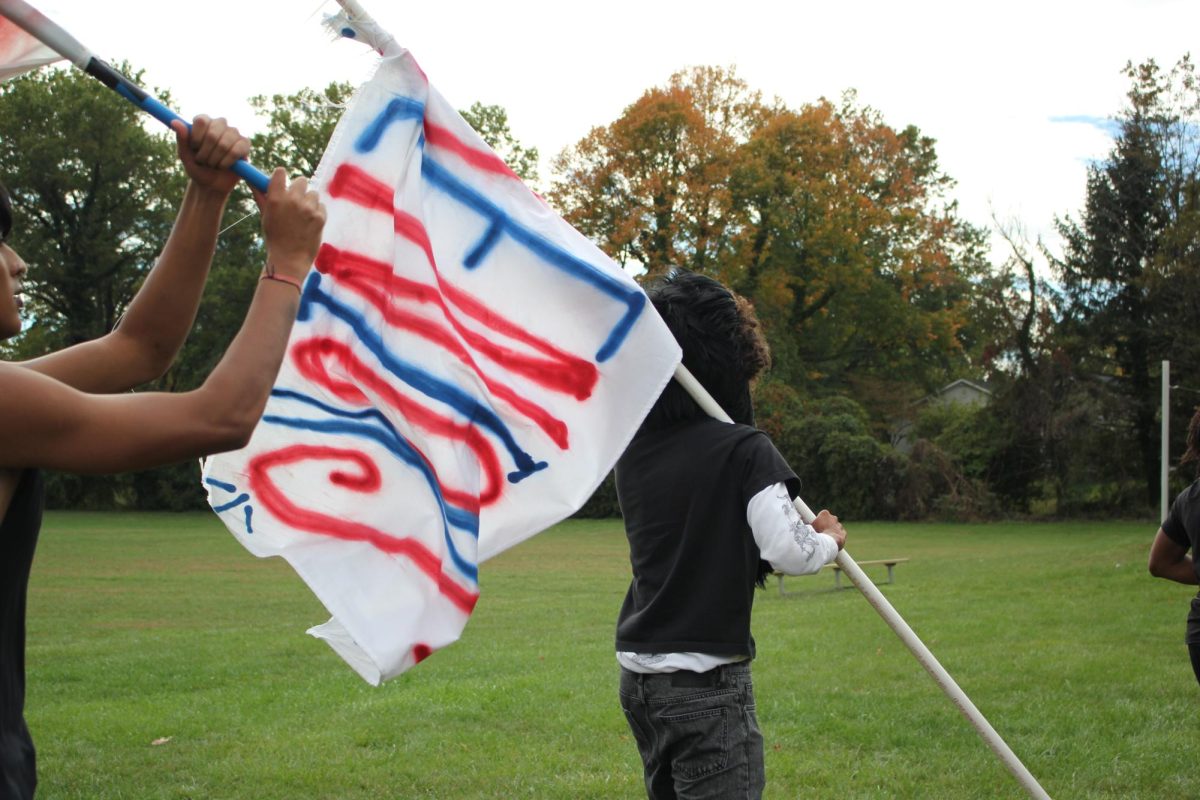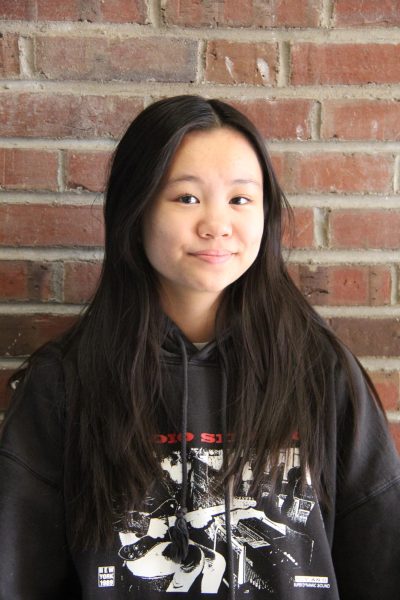This year’s Mock Primary Election (MPE) will be the first in over sixty years to not include students role-playing as real candidates in the primary presidential election.
Since 1960, MPE has been an opportunity for students to learn about civic engagement, where they are introduced to topics regarding voting, elections, and public policy through workshops, keynote speakers, and a simulation of the primary presidential election. The event takes place every four years to correspond with each quadrennial presidential election.

An email sent on February 14 and co-authored by History Department Chair Mary Anne Henderson, MS Director Evan Haine-Roberts, US Director Noah Rachlin, and Director of Teaching and Learning Jackie Dawson announced a change to the election simulation portion of the event.
The new format of the interdivisional MPE will fit into a half day on Tuesday, April 16 for Middle School and Upper School students. The program will include a keynote speaker, civic education workshops that will be formed with student input, a current events debate with students or guest panelists, and culminate with students casting votes regarding the issue covered in the debate. The day will begin at 8:30 a.m. in advisory groups where advisers will run through the schedule, then transition MS and US students to a gym where a keynote speaker will present and answer questions, after which students will move to different classrooms corresponding to workshops they chose prior to the MPE, and finally, the event will end with a student and guest panelists debate and voting session on the selected issue at around 12 p.m.

According to Rachlin, there are two main reasons why this year’s format of the MPE will not include students acting as current presidential candidates with formal campaigning, speeches, and voting: the drawbacks of role-playing real people and the lack of student engagement from the previous model of the MPE.
Rachlin, a core member of the MPE planning process, questioned the value of “leaning towards an experience centered around people acting as people they aren’t.” This aspect of the event was particularly fraught after a since-removed picture of the 1960 Mock Primary Convention in Stokes Hall was brought down because it showed a student holding the Georgia state flag, a flag which, at the time, contained Confederate imagery. Rachlin concluded that previous aspects of MPE where students would “adopt specific identities and personas that aren’t [their] own” could be seen as “problematic” for the school community.
Henderson, another central member of the MPE planning team, shared similar sentiments about the issues of parroting real-life candidates.
“As a history teacher, this teaches kids how to deeply investigate how someone else speaks, but doesn’t get into critical thinking,” they stated.
The goal of this change is to focus on the civic education aspect regarding politics and current events instead of copying candidates’ stances and personas. Henderson added that through the previous MPE format, students were not challenged to develop their own opinions.
Luke Iacono ’25, who experienced the 2020 MPE agreed with this rationale, although he was disappointed to see a departure from this highly-anticipated part of MPE.
“It was sad to see [the impersonation piece] go, but the more I thought about it, I could see where [the administration is] coming from,” he explained. “I can’t imagine how they could do the same speech format with the current candidates we have currently, to be fair.” Iacono added, “I blame it less on the school and more on the current climate of politics … seems like [MPE in its old format] would be a nightmare trying to police and control.”
MFS alum and MS and US Religion and History Teacher Dan Zemaitis ’98, who experienced multiple Mock Primary Conventions and MPEs as a student, stated another drawback to replicating candidates. Based on the rate of Republican Party candidates dropping out of the race before the primary election, he noted, “The way the election is going now, it looks like the Republican Party will just be Trump from the start. Trying to run it based [on] making up candidates and positions wouldn’t be the best usage of our time.”
According to Henderson and Rachlin, the second reason why this year’s MPE will not include a formal primary election simulation is because the simulation only allowed the students who enrolled in an MPE minor course that prepared and planned the MPE to engage in civic education, while the majority of students in all three divisions “passively watched other people talk,” according to Henderson.
But with this year’s focus on broader civic education workshops, the goal is to “empower more students to get involved by engaging a larger percentage of the school community,” said Henderson. MPE’s new format will encourage active learning that differs from the event’s past format where the majority of students watched students, who, according to Henderson, “are often the same students that always speak.”
Yet, MFS alumna Shelby Deibler ’20, who represented Elizabeth Warren in the 2020 MPE and is currently an undergraduate student at Wellesley College studying Political Science and French, argued that the previous format of MPE allowed more US students to participate, since any student could sign up for the MPE minor course to aid in preparation for the event. Deibler stated that with each candidate’s campaign team modeling real-life politics, there were many positions students represented with jobs such as Finance Director, Press Secretary, or Campaign Manager — not just election candidates.
Acknowledging the “depth of engagement and the type of engagement” is necessary when reviewing traditions and making changes, according to Rachlin.
Ali Sabir ’26, who experienced MPE in 2020, 2016, and 2012, agreed with the administration that student engagement in the new format of MPE, in terms of factors including “time duration and depth of engagement,” will increase because of a “front and center focus [on the civic education workshops].” But when comparing the number of students participating in workshops and as speakers, Sabir believed both formats are “basically the same” since both forms include workshops for all MS and US students and a culminating event that showcases specific student speakers.
Students who have experienced MPEs in the past mostly recall listening to speeches and voting by alignment on policies rather than participating in workshops and discussions. The campaigning, which was done before the event where students hung posters; speeches; and “horse-trading,” which is a form of political bargaining and negotiating, were the highlights of many students’ MPE experiences. Matthew Connor ’26 and Grace Graefen ’26 both were disappointed when they heard this year’s MPE will not include students portraying candidates.
Connor appreciated the replication of an election because he could “hear what each person had to say and vote on topics that interest [him].” Previous MPE elections for Graefen as a sixth grader were so realistic that she believed “the students were actual candidates.”
Several students, such as Nicholas Caputo ’24, interpreted the changes to MPE as a “roundabout way of approaching controversial topics.” By removing the former election simulations, Caputo believed MFS is avoiding difficult conversations and opposing opinions that might be important knowledge for the “real world.”
Noah Frizell ’25 similarly understood the decision to change as MFS not wanting to encourage controversial topics and political discussion. Frizell related the MPE decision to the most recent Inclusivity Community Conversation during Community Time on February 9 where panelists, according to Frizell, “[steered] away from mentioning any of their personal views,” although ironically the topic of the discussion was “Conversing Around Challenging Topics.” With this MPE change being announced less than two weeks after the Inclusivity Community Conversation, Frizell believed the removal of the simulation, especially right after a school-wide discussion on how to not avoid controversial conversations, seemed like “bad taste.”
Another student who wished to remain anonymous was not surprised by the change “considering how other traditions at MFS have been changed,” but was “obviously disappointed.” The changes to MPE came on the heels of controversy about changes to the traditional Thanksgiving Happening format — a tradition spanning more than two decades — and news that May Day — another quadrennial event scheduled to take place next in 2026 — would return in a new format. The student added that other students who have never experienced an MPE in its original format will be missing a valuable opportunity to gain a “real understanding of what’s going on in the country.”
Deibler expressed her disappointment with the change as the “foundational skills about voter outreach, talking points, and campaigning … will be missed,” especially as the MPE gave students a firsthand experience of an actual campaign “very similar to a real one.” She stated that MPE was a valuable and useful experience for her passion in Political Science.
Deibler understood the intentions of the change about the students representing candidates given that “[current] American talking points [and] … ‘kitchen table issues’ are not appropriate [in the] K-12 environment.” Additionally, Deibler agreed with previous forms of MPE having a lack of educational value as a result of replicating politics since “politics [is often] the same talking points and just parroting it back, no matter what side of the spectrum you’re on.” Lastly, candidates often represented in the MPE have strong opinions abiding by their corresponding party, but Deibler explained, “somewhere [in that spectrum] there’s a middle, but it never really gets to that center point.” The former version of MPE did not show a clear representation of middle-ground perspectives within politics.
Yet, Upper School History Teacher Clark Thomson explained how students would often “miss the point of MPE” by focusing on speeches instead of the educational value of the event. As the former History Department chair, he organized the past four MPEs, and he noted that focusing on the speeches “isn’t really the important part, even though people think it is.”
Although Thomson was not involved with the planning process of MPE this year, he has influenced the decision to move away from the idea of acting as a political candidate by having conversations in years prior: “I suggested to [Associate Head of School/Academic Dean] Meredith Godley [moving away from acting as candidates] … In the present political climate, it would be something that was divisive or a joke, and that’s something I never wanted it to be.”
The conversations Thomson had with Godley coincide with a time when the administration was “beginning a process of reviewing all of [the school community’s] traditions.” Thomson specified that other faculty members involved with event planning may have also shared similar thoughts about mimicking candidates. Current core members of the MPE planning process simply shared and enacted these ideas, according to Thomson.
Despite the fact that election simulations will not be continuing in future MPEs, according to Henderson, the aspect of a planned debate with students and guest panelists representing each side of a given topic along with a voting period will “maintain as a core component of a highlight of the experience for students.” The topic will be chosen based on student interest and guest speaker availability. Students will vote on their preferred side of the debated issue following the panelists’ debate.
Students are encouraged to fill out an interest form to personalize the workshops offered as part of MPE. The email announcing the changes included a form through which students can express which workshop and guest keynote speaker subjects are of interest and whether they would like to lead a workshop along with a selected faculty member.
When asked about his anticipation of student pushback, Rachlin initially was “not sure if there [would] be pushback,” but if there was pushback, he would listen carefully to feedback while ensuring the criticism was genuine: “Comparing what of that pushback is a product of not fully understanding versus pushback that comes from a disagreement perspective.”

